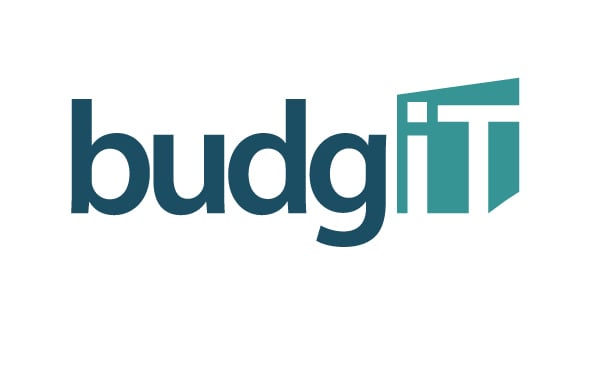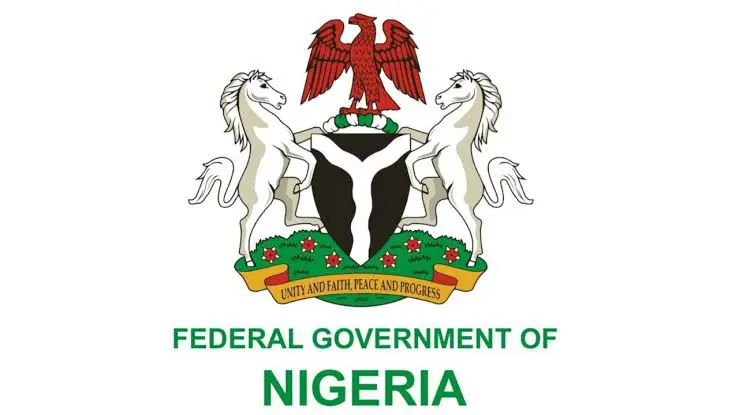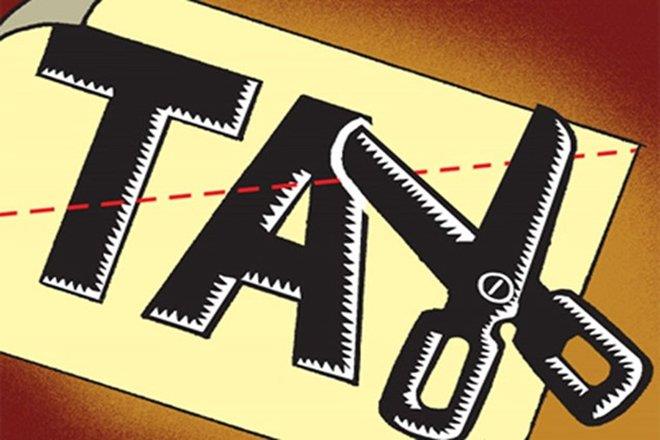News
Anambra, Lagos, Others Top 2025 Fiscal Performance Rankings, As C’Rivers Dropped from 5th to 30th

Anambra State has emerged as the best-performing state in Nigeria’s 2025 Fiscal Performance Ranking, according to BudgIT’s State of States Report, released on Tuesday.
Lagos, Kwara, Abia, and Edo followed in the top five, while Cross River suffered a major decline, dropping from fifth in 2024 to 30th in 2025.
Rivers State, a consistent top-five performer in previous years, was excluded from this year’s report due to the state of emergency declared earlier in the year, which prevented the release of audited data.
In a statement shared on X (formerly Twitter) on Tuesday, BudgIT described this year’s edition—titled “A Decade of Subnational Fiscal Analysis: Growth, Decline and Middling Performance”—as a milestone marking 10 years of tracking fiscal sustainability and governance transparency across Nigeria’s 36 states.
BudgIT highlighted the key movements in the 2025 rankings.
READ ALSO:Lagos Assembly Moves To Establish State-owned Railway Corporation
“Anambra State rose from second to first position, securing the title of the best-performing state in the federation, while Lagos maintained its second place for the second consecutive year.
“Kwara climbed from fourth to third, Edo entered the top five after consistently ranking within the top ten over the last four editions, and Abia, which had never previously featured in the top 10, now ranks fourth,” the organisation said.
Other notable movements include Akwa Ibom, which surged 17 places from 27th to 10th, and Zamfara, which moved up nine places from 26th to 17th.
At the lower end of the rankings, Imo, Kogi, Jigawa, Benue, and Yobe occupy the bottom positions.
The report retained five key metrics to rank all 35 states: Index A – a state’s ability to meet operating expenses using only Internally Generated Revenue (IGR); Index A1 – year-on-year IGR growth; Index B – capacity to cover all expenses and loan obligations using total revenue without borrowing; Index C – debt sustainability based on foreign debt as % of total debt, total debt as % of revenue, debt service as % of revenue, and personnel cost as % of revenue; and Index D – prioritisation of capital expenditure over recurrent spending.
On revenue performance, BudgIT noted major shifts in IGR.
READ ALSO:UK Bars Over 100 Job Roles From Foreign Recruitment To Curb Migration
“While Rivers (121.26%) and Lagos (118.39%) were the only two states with sufficient IGR to cover their operating expenses in 2024, the absence of Rivers from this year’s analysis has reshaped this dynamic.
“Lagos remains a returning champion with 120.87%, while Enugu now leads with an impressive 146.68% IGR-to-operating expense ratio,” the report said.
Only five states—Abia, Anambra, Kwara, Ogun, and Edo—generated enough IGR to cover at least 50% of their operating expenses, compared with six in 2024. Fourteen states now require more than five times their IGR to cover costs, up from six in 2024, underscoring persistent challenges.
In capital expenditure, Abia led with 77.05% of its total expenditure devoted to capital projects, followed by Anambra, Enugu, Ebonyi, and Taraba, each allocating over 70%.
Overall, 24 states spent at least half of their budgets on capital projects, while Bauchi, Ekiti, Delta, Benue, Oyo, and Ogun devoted more than 60% to personnel and overhead costs.
Total recurrent revenue for all 35 states grew from N6.6 trillion in 2022 to N8.66 trillion in 2023 and N14.4 trillion in 2024—a 66.28% increase, far surpassing the 28.95% rise between 2022 and 2023.
READ ALSO:UK Bars Over 100 Job Roles From Foreign Recruitment To Curb Migration
Lagos accounted for 13.42% (N1.93 trillion) of total revenue in 2024. Gross FAAC transfers increased by 110.74%, reaching N11.38 trillion, with states like Oyo (785.79%), Delta (708.36%), and Anambra (640.98%) recording over 600% growth between 2015 and 2024. Despite these gains, 28 states relied on FAAC for at least 55% of total revenue.
Subnational debt also saw a change. Total debt rose modestly from N9.89 trillion in 2023 to N10.57 trillion in 2024, a 6.8% increase. The top five debtor states—Lagos, Kaduna, Edo, Ogun, and Bauchi—accounted for 50.32% of total debt.
Encouragingly, 31 states reduced domestic debt by at least N10 billion, while foreign debt fell by over $200 million.
On long-term trends, BudgIT said, “Over the past decade, the State of States has evolved into Nigeria’s most authoritative subnational fiscal analysis. This 10th edition not only reflects the story of growth and imbalance but also underscores the urgent need for reform.”
READ ALSO:Tinubu Gives D’Tigress $100,000 Each, Flats, National Honour
“Fiscal sustainability requires that states look inward, improving revenue systems, cutting waste, and prioritising infrastructure and human development investments that deliver long-term value,” said Vahyala Kwaga, Group Head of Research.
The report also highlighted uneven social spending. In education, only 66.9% of the budgeted N2.41 trillion was spent. Nine states—Edo, Delta, Katsina, Rivers, Yobe, Ekiti, Bayelsa, Bauchi, and Osun—exceeded 80% of their budgeted allocations, with Edo, Delta, and Katsina surpassing 100%. Average per capita spending remained low at N6,981, with no state exceeding N20,000 per capita and only eight states above N10,000.
In health, the states budgeted N1.32 trillion but expended N816.64 billion, achieving 61.9% implementation. Seven states—Yobe, Gombe, Ekiti, Lagos, Edo, Delta, and Bauchi—spent over 80% of their health budgets, with Yobe leading at 98.2%. Average per capita spending was N3,483, with only a few states exceeding N5,000, highlighting gaps in service delivery relative to education.
News
Nigerian Govt Launches LG Proof Of Address To Improve Citizen Identification

The Federal Government has officially rolled out the Local Government Proof of Address, POA, project, an initiative designed to strengthen national security, improve citizen identification, and enhance service delivery across the country.
The project, initiated by the Association of Local Governments of Nigeria, ALGON, was formally approved through a circular issued by the Office of the Secretary to the Government of the Federation, OSGF, with reference number 5964B/S,13/VBA/T.IIIA/704.
According to the circular, the POA scheme took effect from October 1, 2025. However, implementation is at various stages in different federal and state Ministries, Departments and Agencies, MDAs.
According to the circular, under the new arrangement, all federal and state Ministries, Departments and Agencies, MDAs, government-owned corporations, and public institutions are mandated to replace the long-standing use of utility bills as proof of residence with the standardized Proof of Address issued at the local government level.
READ ALSO:FULL LIST: FG Selects 20 Content Creators For Tax Reform Education
The circular explained that the POA project aligns with President Bola Tinubu’s eight-point development agenda, particularly, in the areas of governance reform, security enhancement, and institutional efficiency.
It is domiciled in the Office of the Secretary to the Government of the Federation, with the Nigerian Postal Service, NIPOST, serving as the coordinating federal agency.
“For years, the reliance on utility bills as proof of residence has posed major challenges. Many Nigerians do not have utility bills in their names, while others rely on outdated or shared documents that do not accurately reflect their current place of residence.
“In the same vein, the increasing use of digital services and prepaid utilities has further reduced the reliability of utility bills as a credible verification tool,” the circular stated.
READ ALSO:FG Offered 4,000 Pregnant Women Free C-section – Report
Also, it noted that while the National Identification Number, NIN, remains a critical component of Nigeria’s identity management framework, a significant number of NIN records do not capture current or accurate residential addresses, limiting their effectiveness for residency verification, security profiling, and service planning.
“The POA is therefore designed to fill this critical gap by providing verified, location-specific, and up-to-date address information directly linked to local governments.
“The POA framework places residency verification at the grassroots, where local authorities have better knowledge of their communities. By anchoring address verification at the local government level, the initiative is expected to improve community-level intelligence, crime prevention, emergency response, and population data accuracy,” it added.
READ ALSO:FG Approves N54tn MTEF For 2026 To 2028
Beyond security, the circular noted that POA data is expected to deliver wide-ranging benefits, including improved public service delivery, equitable resource allocation, disaster management planning, urban development, social intervention targeting and financial inclusion.
The circular directed state governments to lead awareness and sensitisation efforts within their jurisdictions, with technical and institutional support from the OSGF, NIPOST, and ALGON.
News
Tax Reform Law: Reps Minority Caucus Seeks Suspension Of Implementation

The Minority Caucus of the House of Representatives has demanded the immediate suspension of the implementation of the recently enacted tax reform laws.
The demand follows allegations that the statutes were unlawfully altered after being passed by the National Assembly and assented to President Bola Ahmed Tinubu.
The Minority Leader, Rep. Kingsley Chinda, in a statement issued on Monday alongside other principal officers of the caucus, expressed deep concern and overwhelming disappointment over the controversy surrounding the tax reforms.
READ ALSO:New Tax Laws: Suspend January 2026 Implementation — Senator Ndume Tells Tinubu
According to the caucus, the allegations, if proven, strike at the core of Nigeria’s legislative integrity, constitutional order and democratic governance.
While acknowledging that disagreements often accompany major reforms, the caucus stated that the present situation goes far beyond routine policy debate, as it involves claims that the laws were fraudulently altered, gazetted and circulated in a form different from what was duly passed by both chambers of the National Assembly and signed into law by the President.
It recalled that the matter was formally raised on the floor of the House during a recent plenary session, leading to the constitution of a high-powered investigative committee to probe the allegations.
READ ALSO:FIRS Confirms NIN As Tax ID
The caucus pledged its full support for the investigation, assuring Nigerians that the truth would be uncovered and that anyone found culpable would be held accountable.
“We want to assure Nigerians that the Minority Caucus of the House of Representatives will stand with the entire House to ensure that the circumstances surrounding this illegality are exposed and the culprits brought to book in the interest of justice,” the statement read.
News
Outrage, Confusion Trail Rumours Of Mohbad’s Wife Giving Birth Two Years After His Death

Many Nigerians on social media have reacted to the trending news about Wunmi, late singer Mohbad’s wife.
Rumours have emerged online that Wunmi recently welcomed a new baby with another man.
The rumours came a month after Mohbad’s family banned Wunmi from using their surname.
READ ALSO:Nigerian Engineers applaud Gov. Mohammed’s $5bn Investment Deals
The viral rumour that started on X sparked controversy on social media with netizens raising eyebrows – since Mohbad died on September 12, 2023, and his body is still in the morgue.
The development has revived calls for a DNA test on her son with the late singer, Liam, who was five months old when Mohbad died.
Following the controversial circumstances surrounding Mohbad’s death, and allegation of infidelity against Wunmi, the deceased’s father, Joseph Aloba, requested a DNA to determine Liam’s paternity.
Reacting to the development, actor Stanley Ontop in a post on Instagram wrote “Mohbad dled in 2023 Him wife give birth in 2025? What God can not do does not exist! Clap hand for Jesus. Anyways in life as a man try not to kpai, no matter what. Life goes on Anyways congratulations iyawo Mohbad.”
READ ALSO:Mohbad: I Left Immediately – Angela Okorie Speaks On Group Chat Controversy
Also @MasterminddBoB wrote on X; ”Dis is not life pausing ooooo dis is her been a stupid person amid speculation of the requested DNA test for Liam..make una get sense small.”
@AgbafianTV wrote “If the News about mohbad wife allegedly giving birth is through, then know that women are ruthless in all their ways. To be able to deal with women, you’ve to be very ruthless. Don’t die because of any woman.”
@callme_Riken wrote; “I don’t know if the news about Mohbad’s wife, Wunmi, giving birth is true. But if it is. Sooner or later, she was going to move on, whether her father-in-law agreed to bury his son or not. Life doesn’t pause forever.”
@djokaymegamixer wrote on X; “I won’t be surprised if it’s later found out that the story of the late Mohbad’s widow, Wunmi, giving birth was a hoax. There is nothing these guys can’t tweet all in the name of hustling engagements for Elon Musk’s money.”

 Headline4 days ago
Headline4 days agoJUST IN: US Forces Bomb Terrorists Camps In Nigeria

 News5 days ago
News5 days agoOkpebholo Slams ₦25bn Libel Suit On Edo PDP Chairman

 Headline4 days ago
Headline4 days agoUS Dept Of War Shares Video Of Air Strikes In Nigeria

 News4 days ago
News4 days agoPHOTOS: SGF George Akume Weds Ooni’s Ex-Queen

 News21 hours ago
News21 hours agoBREAKING: Anthony Joshua Involved In Road Accident

 News4 days ago
News4 days agoShehu Sani Reacts To Trump’s Military Strikes In Nigeria

 News4 days ago
News4 days agoTrump’s Airstrikes: Halt Military Cooperation With US Immediately – Sheikh Gumi Tells Tinubu Govt

 Headline4 days ago
Headline4 days agoU.S. Lawmaker Reacts To Nigeria, U.S. Airstrikes

 News2 days ago
News2 days agoEx-Edo Gov Obaseki Reacts As His Cousin Is Beaten, Stripped

 News5 days ago
News5 days agoYULETIDE: UBTH CMD Charges Nigerians To Be Hopeful In Coming Year




























